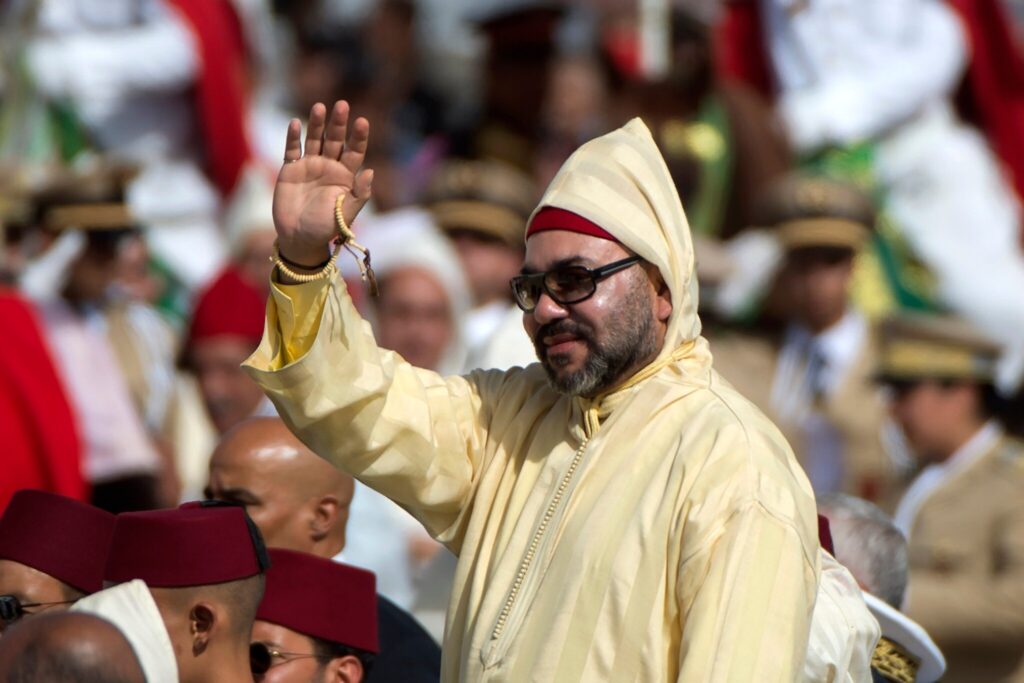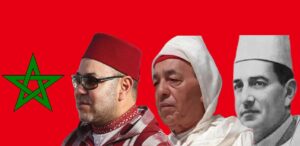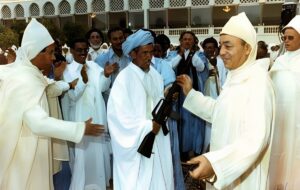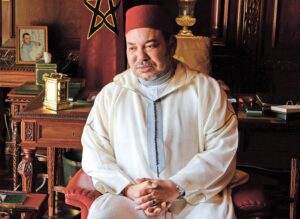In understanding the unique model... Why does Morocco succeed where others fail?!

It's only natural for individuals and societies to succeed in overcoming some challenges and fail in others. However, the approach to this success or failure varies based on the magnitude and fate of these challenges, and their long-term impact on the future. Hence the old saying: "The blow that doesn't kill me makes me stronger!" The same applies to the proper management of periods of "prosperity," managing resources, seizing opportunities, and building on them to serve the future of these individuals and societies. Morocco, which is no exception to these rules, represents a unique case in many respects for those who attempt to understand it beyond the propaganda that supports and endorses it, or opposes and opposes it, whether in managing opportunities or confronting crises.
Given the special status that the royal institution, headed by the King, occupies in the conscience of every Moroccan, and in the details of the entire system, due to its deep roots throughout the history of the oldest monarchy still existing in the world. This is especially true given that this royal family is considered the second-oldest ruling dynasty (after the Japanese); we say that because of this status, it is difficult to truly separate the understanding and analysis of the institution, the monarchy, and its leader, the Moroccan monarch, from the understanding and analysis of Moroccan society and its other vital forces. Therefore, we will notice the overlap between what is called "the throne and the people," not only in managing the battle for liberation from colonialism, but also in the rest of the developmental, political, economic, and even sporting battles that Morocco has fought throughout its long history. Although this fact appears to be propaganda on the surface, anyone who is aware of the details of Moroccan reality knows for sure how difficult it is to understand this reality if it is ignored! A Moroccan uniqueness that is almost lacking in most, if not all, Arab, Islamic, and African countries, which suffer from a "legitimacy" problem, the most important manifestation of which is the weak or nonexistent trust between the ruler and the ruled!
We will not focus here on Morocco's success in managing its resources and building an economy that does not depend on oil (Morocco, Jordan, and Lebanon are the only Arab countries that do not have this resource), but rather on building an industrial base that is envied by both friends and foes. These are well-known successes, and perhaps we will have the opportunity to discuss them at another occasion. Instead, we will focus on the catastrophe of the most powerful earthquake in Morocco's modern history, which left behind great human and economic tragedies and posed a colossal challenge to the state and society in various fields.
In major crises, leadership excels. A sound understanding of priorities is key to success, inspiring citizens to rally around them with enthusiasm and optimism. This is what happened in Morocco. The presence of King Mohammed VI on the front lines from the first moments of the earthquake served as a check on the government's response and a source of reassurance for citizens. His order to mobilize the army's human and technical capabilities—a knowledgeable expert on the difficult, mountainous terrain of the affected area—was an effective alternative to waiting for international support. His blood donation sparked a surge in blood donations from thousands of Moroccans, exceeding hospital needs. His visits to affected patients in hospitals paved the way for human communication between Moroccans across the country. His announcement of the establishment of a fund to support recovery from the pandemic was the secret to unleashing the immense solidarity inherent in this nation's DNA. The images that dazzled the world were of solidarity convoys that spared no stricken area, no matter how difficult it was to reach them. Moroccan citizens have been a supporter of their government's efforts, while the Arab and African custom, as a result of the weakness or lack of trust between the two sides, has led to a culture among citizens that says: Go, you and your Lord, and fight, while we sit here!!
Moving on to confronting the most far-reaching repercussions of the disaster—reconstruction—the priorities of the Moroccan leadership, represented by its symbol and leader, His Majesty the King, were clearly set. These priorities included beginning to shelter those affected in these difficult areas, especially as winter approaches, when temperatures can drop below zero. This time was also used to conduct preemptive studies on land preparation and land consolidation, so that future buildings can withstand any future damage. Here, it is useful to recall the dilemma that has eluded successive governments since independence: delivering services to the residents of remote areas in the Atlas Mountains, including education, health, roads, water, and electricity, despite the rugged terrain, difficult climate, and the insistence of local residents to remain in their ancestral natural environment. Accordingly, the wise royal gesture can be understood when he directed the government to ensure that all relief and reconstruction measures are carried out with “respect for the dignity of the population, their customs, traditions, and heritage.” While emphasizing at the same time that reconstruction must constitute an opportunity to "launch a well-thought-out, integrated, and ambitious program to rebuild and rehabilitate the affected areas in general, both at the level of strengthening infrastructure and improving the quality of public services." This profound understanding by King Mohammed VI of the local culture of his subjects in these regions is what most governments and leaders in the Arab and Islamic worlds lack, insisting on "replicating development recipes" in various regions and sectors of their countries, without taking into account the local and cultural specificities of the different regions.
The second innovative and bold idea is to lift the burden of the reconstruction program from the government and the public budget, in order to preserve the country's financial balance. This idea was embodied by Moroccan King Mohammed VI by establishing a special fund for this purpose, replicating his successful experience in confronting the repercussions of the COVID-19 pandemic, which mitigated its effects across various countries around the world and spared the Moroccan economy the consequences of its costly bills. Always at the forefront, His Majesty the King was the first to donate to this fund from his own pocket, with an amount of one billion dirhams (100 million dirhams), followed by the Central Bank with a similar amount, with donations expected to flow thereafter. In this spirit, Moroccans were able to raise more than 23 billion dirhams ($2.3 billion) for the COVID-19 fund in just a few days, as expected in this case as well, thus establishing the "Moroccan exception" in this regard, as in previous cases.
The King's decision to compensate the owners of more than 50,000 homes that were completely or partially destroyed, by granting $14,000 for the first type and $8,000 for the second type (a sum sufficient to carry out the task without using personal financial balances), and granting humanitarian (living) aid amounting to $3,000 for each family, enabling them to spend on their living expenses for a period of more than a year, will lead to a distinctive economic movement in the region, by transforming it into an open workshop for construction, reconstruction and development, with the government covering the remaining infrastructure equipment and needs, which will create an actual development boom, not a theoretical one, in these regions that have long suffered from fragility.
In conclusion, it can be said that the uniqueness of the Moroccan model is due to the combination of several factors. First, a well-established monarchy that enjoys an unparalleled level of legitimacy, headed by a king who loves his people and whose people love him, understands them, listens to them, and trusts them and is quick to emulate him. Second, a vibrant people with a strong sense of belonging and solidarity, who read from the same page as their king. Therefore, the efforts of both parties flow in a single direction, not in conflict. Third, democratic governments that rotate in power according to programs that are subject to popular referendums in elections whose integrity and results are unquestioned (another unique case in the Arab and Islamic world). These governments possess the competencies to translate the visions of their leader, the king, and meet the priorities of citizens. The last of these elements is what can be called the "imperial culture" of Moroccans, including king, government, and people. Every Moroccan recognizes that they are descendants of a proud, independent people who have never been ruled by any foreign power throughout their history, and that they have always been an Arab and Islamic "empire" that, in its most glorious era, encompassed a region extending from the Pyrenees Mountains on the French border to the Senegal River, and from the Atlantic Ocean to Chad. A sense of grandeur makes them accept no challenge, and they accept challenges—no matter how daunting—with confidence in victory, through strategic patience and a deep faith in God and His grace.





